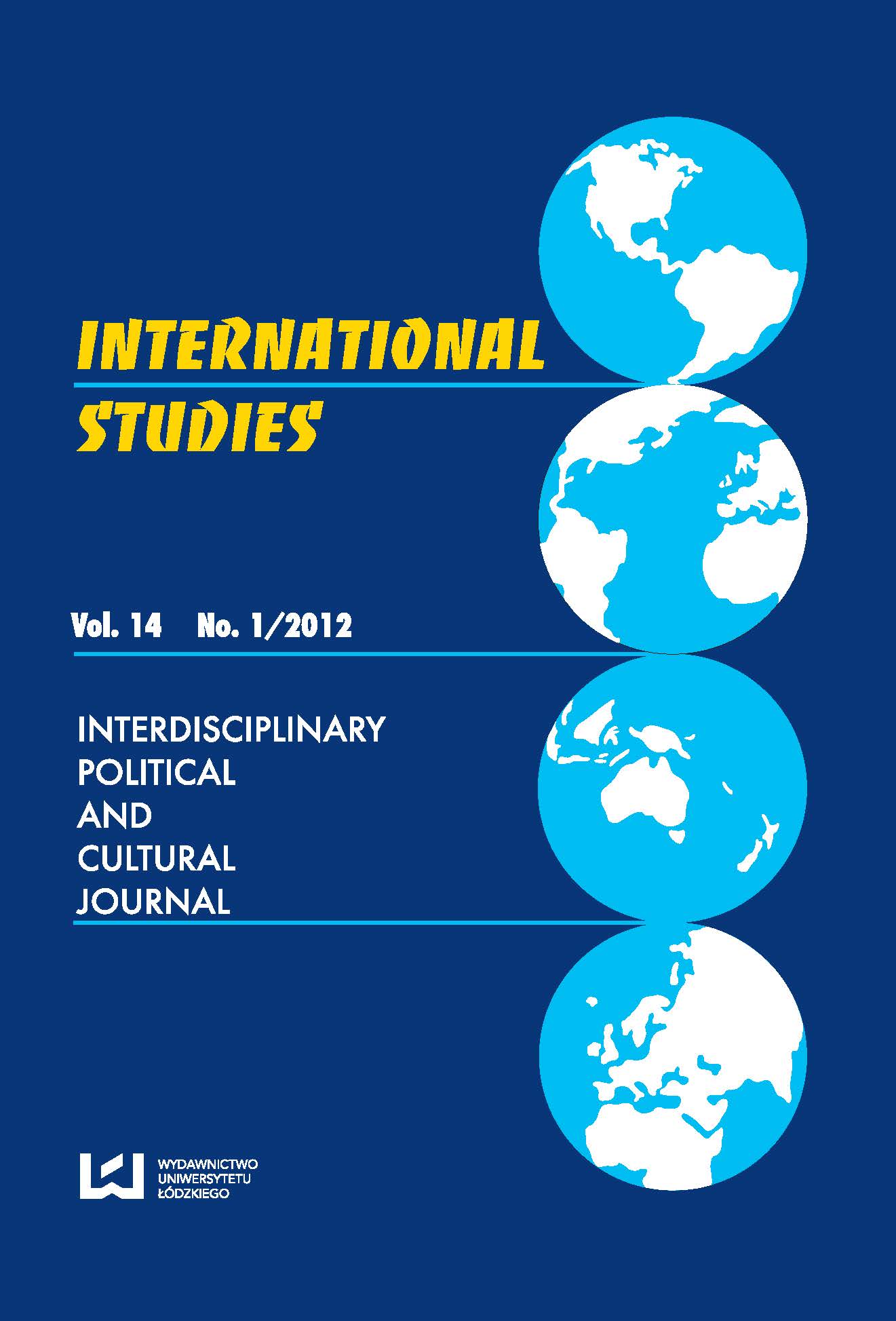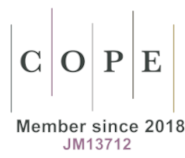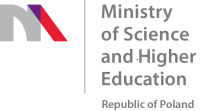Current Prospects of Korean Reunification against the Background of the Interstate Relations
DOI:
https://doi.org/10.2478/v10223-012-0054-0Keywords:
Korean reunification, inter-Korean relations, the Republic of Korea (South Korea), North KoreaAbstract
Forecasts predicting the reunification of the Korean Peninsula were common throughout the 1990s. Since then, enthusiasm for such predictions has dampened, and though the fundamental assumption of reunification remains, predictions of when and how this will happen have been more restrained. Reunification leaves two unresolved yet interdependent issues: reunification itself, which is the urgent challenge; and the strategic issues that emerge from reunification, which have the potential to fundamentally transform strategic relations in the region of Northeast Asia. Within this context, this paper examines the prospects of Korean reunification against the background of the interstate relations. Initially, it will establish the framework from which such scenarios will emerge: the historical background of the division, the extreme differences between the two states, the role played by the North Korean nuclear threats and the impact of the September 11, 2001 on the interstate relations, and finally general situation and relations in the East Asian region. Then, three possible scenarios of the unification will be developed: through peaceful integration, through the fall of North Korea or through a war. Summing up, even the death of Kim Jong Il will not bring change in the domestic and foreign policy of North Korea which is going to continue an aggressive approach toward the South. In the short-term reunification is definitely not in the interest of the current ROK administration, and the South has no intention of encouraging it. None of the considered scenarios envisions early reunification, and it seems that for the future, the status quo on the Korean Peninsula will remain.
Downloads
References
A White Paper on South-North Dialogue in Korea. Seoul, National Unification Board, Republic of Korea 1988: 11-15.
Google Scholar
Barry J., R. Watson. “The Axis of Evil.” Newsweek 6 February 11 (2002): 29.
Google Scholar
Bluth Ch. Crisis on the Korean Peninsula. Washington: Potomac Books, 2011.
Google Scholar
Boisseau Du Rocher S. “Crise economique et regionalisation en Asie orientale.” Revue Tiers Monde 169 Janvier-Mars (2002): 34.
Google Scholar
Burdelski M., W. J. Dziak. “Reakcje państw Azji Południowo Wschodniej.” Sprawy Międzynarodowe nr 1LV ( 2002): 114.
Google Scholar
Calabresi M. “The Axis Of Evil: Is It For Real?” Time 6 February 11 (2002): 30-31.
Google Scholar
“China.” East Asian Strategic Review (2001): 188-189.
Google Scholar
Choi, Y. B. et al. Eds. Perspectives on Korean Unification and Economic Integration. Northampton: Cheltenham, 2001.
Google Scholar
Choi, Y. B. The Impact of the US Attacks on North Korea, September 14, 2001 North East Asia Peace and Security Network. Special Report: napsnetlist@nautilus.org.
Google Scholar
Chung-in Moon, O. A. Westad, Gyoo-hyoung Kahng. Eds. Ending the Cold war in Korea: Theoretical and Historical Perspective. Seoul: Yonsei University Press, 2001.
Google Scholar
Dong-won L. “Inter-Korean Summit Meeting and Future Tasks.” Korea Focus No. 5 (September-October 2002): 82.
Google Scholar
Fuqua J. L. Jr. Korean Unification: Inevitable Challenges. Washington: Potomac Books, 2011.
Google Scholar
Hakjoon K. The Domestic Politics of Korean Unification: Debates on the North in the South, 1948-2008. Jimoondang: Edison N.J, 2010.
Google Scholar
Hirsh M. “Kim is the Key Danger . . .” Newsweek 2 January 13 (2003): 19.
Google Scholar
Hirsh M., T. Lipper, M. Isikoff. “War on terror.” Newsweek The International Newsmagazine, 18 October 28 (2002): 24.
Google Scholar
Jinwook, Ch. Ed. Korean Unification and the Neighboring Powers. Seoul: Neulpum Plus, 2011.
Google Scholar
Jinwook, Ch. Ed. US-China Relations and Korean Unification. Seoul: Korea Institute for National Unification, 2011.
Google Scholar
Jwa, Sung-Hee, Chung-in Moon. Eds. Constitutional Handbook on Korean Unification. Jeong-Ho Roh, Seoul, Korea Economic Research Institute, 2002.
Google Scholar
Kim I. J., H. P. Lee. Korea and China in a New World: Beyond Normalization. Seoul, 1993.
Google Scholar
Ku-Hyun J. “North Korea Is Part of Korea.” Korea Focus 10 July-August (2002): 23.
Google Scholar
Lee B. J. “The Revenge of the Nerds.” Newsweek The International Newsmagazine 13 April 1 (2002): 44.
Google Scholar
Lee J.-Ch. “The Implications of North Korea’s Reform Programme and Its Effects on State Capacity.” Korea and World Affairs 3 (2002): 358.
Google Scholar
Lowe N. Mastering Modern World History. Macmillan Press Ltd., 1997.
Google Scholar
“Obszar WNP: koniec Eurazji?” Rocznik Strategiczny (2001): 225.
Google Scholar
Peace and Prosperity: White Paper on Korean Unification 2005, Seoul, Ministry of Unification, Republic of Korea, 2005.
Google Scholar
Quadrennial Defence Review Report. Department of Defence: September 30, 2001: 143.
Google Scholar
“Region Azji i Pacyfiku-Qua de nef?” Rocznik Strategiczny (2001): 371.
Google Scholar
“Russia.” East Asian Strategic Review (2001): 248.
Google Scholar
Scobel A. Projecting Pyongyang: the Future of North Korea’s Kim Jong Il regime. Carlisle: Strategic Studies Institute, U.S. Army War College, 2008.
Google Scholar
“The Korean Peninsula.” East Asian Strategic Review (2001): 154-157.
Google Scholar
“The Terrorist Attacks in the United States and Security in East Asia.” East Asian Strategic Review (2001): 34-36.
Google Scholar
Thomas E. “Women, Wine and Weapons.” Newsweek The International Newsmagazine 2 January13 (2003): 16.
Google Scholar
Tkacik J. J., B. Hwang. “President Bush’s Trip to Asia: Promoting Security, Prosperity, and Peace.” Backgrounder 1517 February 12 (2002): 1.
Google Scholar
Wehrfritz G., H. Tahayama. “Hands across the Sea.” Newsweek 12 September 16/September 23 (2002): 27.
Google Scholar
Weiss J. “US Faces New Challenges in Asia.” Taipei Journal August 17 (2001): 123.
Google Scholar
Wolf Ch. Jr., K. Akramov. North Korean Paradoxes: Circumstances, Costs, and Consequences of Korean Unification. Santa Monica: RAND Corporation, 2005.
Google Scholar
Xiaoming Z. “China and Inter- Korean Relations.” Asian Perspective 26/ 3 (2002): 134-136.
Google Scholar
Xuehan D. “Several Issues Concerning the Peaceful Reunification of the Korean Peninsula. ”Dongjang Journal 18/ 4 December (2001): 32.
Google Scholar
Downloads
Published
How to Cite
Issue
Section
License

This work is licensed under a Creative Commons Attribution-NonCommercial-NoDerivatives 4.0 International License.

















